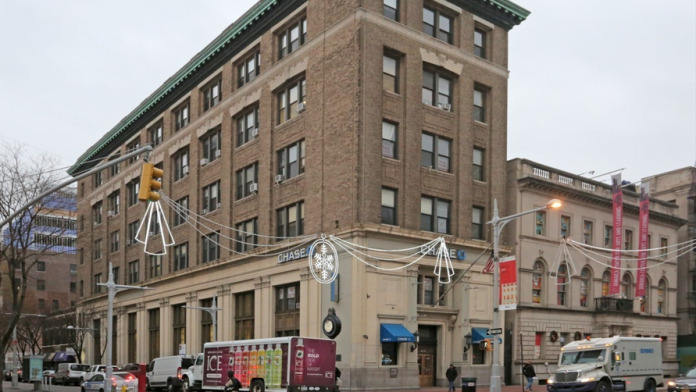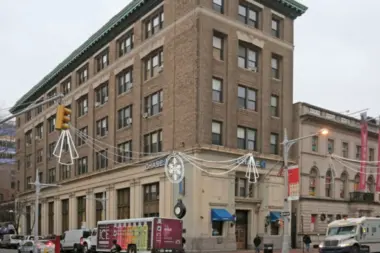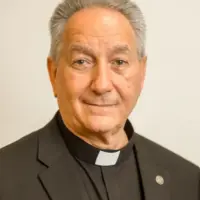About Catholic Charities – Jamaica Family Treatment and Rehabilitation
Catholic Charities’ Jamaica Behavioral Health Clinic offers compassionate and trauma-informed care for people facing substance use and mental health challenges or both in Queens, New York. The clinic’s recovery-focused approach promotes community wellness and helps people reclaim and rebuild their lives.
Their integrated services cover primary medical care, onsite pharmacy and targeted case management including housing support. They offer tailored care to veterans and their families in recovery. Services are delivered in a nurturing outpatient environment by trained and dedicated professionals. The clinic makes access to care super easy with reduced wait time regardless of location. Discount/sliding scale fee offering lets you pay based on your income and family size. This ensures you won’t be denied care due to your inability to pay.
Crisis Support and Stabilization
Jamaica Behavioral Health Clinic provides 24/7 crisis care for individuals facing acute mental health and substance use challenges. Their crisis team delivers immediate relief and stabilization in a safe and supportive environment while ensuring clinically appropriate care.
They’ll refer you to the appropriate level of care within the community following stabilization. They can also provide immediate screening and risk assessment for mental health and substance dependence alongside basic primary care needs.
Medication-Supported Opioid Use Recovery
Jamaica Behavioral Health Clinic helps individuals over 16 overcome opioid use issues via medication-assisted treatment or MAT. They may offer a prescription of either Suboxone or Vivitrol to help you alleviate physiological cravings and eliminate painful withdrawal symptoms. MAT includes counseling to help you address underlying psychological and build coping skills that foster relapse prevention.
Their broader MAT program also includes peer support services. Peer specialists provide emotional support, shared experiences and guidance that can help you stay engaged in treatment as you navigate recovery.
Tailored Support for Military Veterans
Jamaica Behavioral Health Clinic partners with the US Department of Veterans Affairs to provide tailored services for veterans and families. Services are geared towards addressing the physical and emotional needs of veterans to ensure a smooth transition to civilian life.
They offer screening, brief intervention and treatment referrals as necessary. The clinic has therapists highly skilled in military culture alongside peer advocates with military experience. These experts can deliver evidence-based therapy for trauma & PTSD while addressing reintegration challenges. They also provide guidance rooted in military experience and can help you apply for military benefits.
WIC Program and Healthy Families
The Women, Infants and Children’s (WIC) nutrition initiative support can be helpful to pregnant women in recovery. The program champions improved pregnancy outcomes and supports infant growth & development by encouraging breastfeeding. WIC offers food benefits alongside nutritional counseling, health education and breastfeeding support to eligible women. They also offer farmer’s market vouchers and referrals to health care and social services as necessary.
Rehab Score
Gallery


Other Forms of Payment
Medicaid is a state based program that helps lower-income individuals and families pay for healthcare. Medicaid covers addiction treatment so those enrolled can use their coverage to pay for rehab. When a program accepts Medicaid the client often pays very little or nothing out of their own pocket.
Medicare is a federal program that provides health insurance for those 65 and older. It also serves people under 65 with chronic and disabling health challenges. To use Medicare for addiction treatment you need to find a program that accepts Medicare and is in network with your plan. Out of pocket costs and preauthorization requirements vary, so always check with your provider.
Self-pay involves paying for treatment out of your own pocket. You can use savings or credit, get a personal loan, or receive help from family and friends to fund your treatment. If you don't have insurance or your insurance plan doesn't cover a specific program, self-pay can help ensure you still get the care you need.
Private insurance refers to any kind of healthcare coverage that isn't from the state or federal government. This includes individual and family plans offered by an employer or purchased from the Insurance Marketplace. Every plan will have different requirements and out of pocket costs so be sure to get the full details before you start treatment.
Financial aid can take many forms. Centers may have grants or scholarships available to clients who meet eligibility requirements. Programs that receive SAMHSA grants may have financial aid available for those who need treatment as well. Grants and scholarships can help you pai for treatment without having to repay.
Addiction Treatments
Levels of Care
Outpatient Programs (OP) are for those seeking mental rehab or drug rehab, but who also stay at home every night. The main difference between outpatient treatment (OP) and intensive outpatient treatment (IOP) lies in the amount of hours the patient spends at the facility. Most of the time an outpatient program is designed for someone who has completed an inpatient stay and is looking to continue their growth in recovery. Outpatient is not meant to be the starting point, it is commonly referred to as aftercare.
Intensive Outpatient Programs (IOP) are for those who want or need a very structured treatment program but who also wish to live at home and continue with certain responsibilities (such as work or school). IOP substance abuse treatment programs vary in duration and intensity, and certain outpatient rehab centers will offer individualized treatment programs.
Treatments
The goal of treatment for alcoholism is abstinence. Those with poor social support, poor motivation, or psychiatric disorders tend to relapse within a few years of treatment. For these people, success is measured by longer periods of abstinence, reduced use of alcohol, better health, and improved social functioning. Recovery and Maintenance are usually based on 12 step programs and AA meetings.
When you choose drug rehab in New York, you'll participate in a variety of treatments that are designed to help you live a drug-free lifestyle. Common methods of treatment include group, individual, and family counseling, medication management, nutrition, exercise, and management of co-occurring mental health disorders.
Mental health rehabs focus on helping individuals recover from mental illnesses like bipolar disorder, clinical depression, anxiety disorders, schizophrenia, and more. Mental health professionals at these facilities are trained to understand and treat mental health issues, both in individual and group settings.
Substance rehabs focus on helping individuals recover from substance abuse, including alcohol and drug addiction (both illegal and prescription drugs). They often include the opportunity to engage in both individual as well as group therapy.
Programs
Adult rehab programs include therapies tailored to each client's specific needs, goals, and recovery progress. They are tailored to the specific challenges adult clients may face, including family and work pressures and commitments. From inpatient and residential treatment to various levels of outpatient services, there are many options available. Some facilities also help adults work through co-occurring conditions, like anxiety, that can accompany addiction.
Young adulthood can be an exciting, yet difficult, time of transition. Individuals in their late teens to mid-20s face unique stressors related to school, jobs, families, and social circles, which can lead to a rise in substance use. Rehab centers with dedicated young adult programs will include activities and amenities that cater to this age group, with an emphasis on specialized counseling, peer socialization, and ongoing aftercare.
Clinical Services
Research clearly demonstrates that recovery is far more successful and sustainable when loved ones like family members participate in rehab and substance abuse treatment. Genetic factors may be at play when it comes to drug and alcohol addiction, as well as mental health issues. Family dynamics often play a critical role in addiction triggers, and if properly educated, family members can be a strong source of support when it comes to rehabilitation.
In individual therapy, a patient meets one-on-one with a trained psychologist or counselor. Therapy is a pivotal part of effective substance abuse treatment, as it often covers root causes of addiction, including challenges faced by the patient in their social, family, and work/school life.
Life skills trainings involve all the skills a person must have in order to function successfully in the world. These include time management, career guidance, money management, and effective communication. Truly successful addiction recovery is based on the ability to not only live substance-free, but to thrive. Life skills teaches the practical necessities of functioning in society, which sets clients up for success in life, and therefore sobriety.
Staff

Reverend Monsignor Alfred P. LoPinto
President & CEO, Catholic Charities and Affiliated Agencies

Very Rev. Patrick J. Keating, Esq
Deputy CEO, Catholic Charities and Affiliated Agencies

Emmie Glynn Ryan, Esq
Chief of Staff and General Counsel, Catholic Charities and Affiliated Agencies

Christine D'Ottavio
CFO & Senior VP of Finance, Catholic Charities and Affiliated Agencies
Contact Information
161-10 Jamaica Avenue, 4th Floor
Queens, NY 11432